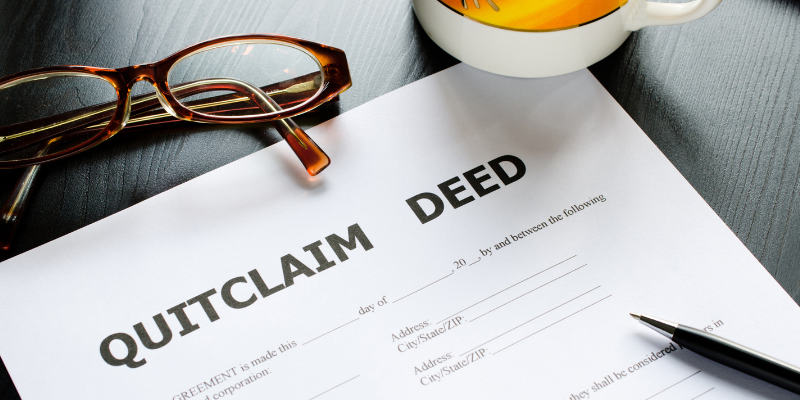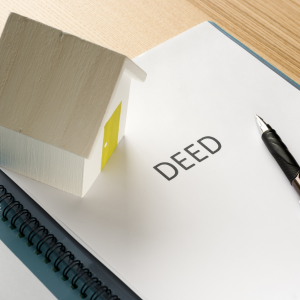
Understanding Property Fraud: Common Schemes and How to Protect Yourself
People who own homes or want to buy homes in Jacksonville, FL, are at a high risk of falling victim to property fraud. It’s important to know the most common scams and how to avoid falling for them. False people can use quitclaim deeds, which are often used to quickly change who owns a piece of property when family members get divorced or when a marriage ends.
A common way to illegally change who owns property without the owner’s knowledge is to forge signatures on quitclaim deeds. Make sure that all of your legal papers are checked and filed correctly with the Duval County Clerk of Courts. This will protect you from these types of scams.
Public records can also help you find changes that weren’t made by you when you check on your property often. Don’t use a sketchy legal service when you file a quitclaim deed, and make sure that everyone is who they say they are.
By following these steps, you can protect yourself from dishonest practices used by individuals in Jacksonville’s real estate market to change property titles without permission. Yellow Card Properties is here to help you navigate these issues and ensure your property rights are secure.
Recognizing Warning Signs of Potential Property Fraud in Real Estate Transactions
Property fraud is something you should be very careful about when you buy or sell a home in Jacksonville, FL, especially when you file a quitclaim deed. Another big red flag is if there are any gaps in the property’s title history. These could mean that documents were faked or changes were made without permission.
Anyone who wants to own the property should make sure they can legally do so and that there are no liens on it. Records of who owns a piece of property that change quickly or for no reason can also be bad signs of fraud.
You should also be wary if sellers or agents give you information that doesn’t seem to fit. Each piece of paper you use should always have the same name, address, and legal description. Be wary of people who try to rush the deal without doing enough research or following the right legal steps.
A good real estate lawyer in Jacksonville who knows the laws can help protect you from fraud by carefully going over all the paperwork before the quitclaim deed transfer is finalized.
Key Strategies for Preventing and Detecting Real Estate Scams
Before you file a quitclaim deed for a home in Jacksonville, FL, you should make sure you know how to avoid and spot possible scams. Start by finding out as much as you can about the property’s past. Then, check public records to see who owns it.
This shows that the person giving away the title really does own it. Talk to a real estate lawyer you can trust. They can help you find any mistakes in the paperwork and explain the complicated legal terms that are only found in Florida’s real estate laws.
It is also a good idea to work with licensed professionals, such as real estate agents or certified title companies, who know the Jacksonville market. They give you even more protection against fraud. Take your time going over all of the paperwork to find any mistakes or strange words that could point to fraud.
It’s likely a scam if someone tries to trick you or makes you an offer that seems too good to be true. People in Jacksonville who work with quitclaim deeds are much less likely to be scammed by real estate fraud if they follow these tips.
How Title Insurance Can Protect Against Property Fraud Risks
People who own property in Jacksonville, FL, who want to protect themselves against fraud should get title insurance before they file a quitclaim deed. If the buyer doesn’t find any claims or liens on the property during the first title search, this type of insurance will protect them.
The real estate market in Jacksonville moves quickly, and quitclaim deeds are often used to change ownership between family members or co-owners. This is why title insurance is important. It guards the policyholder legally and financially in case someone challenges ownership because of fraud in the past or because there are no known heirs.
The people who work for title insurance carefully check the public records to see if there are any issues before the closing. This makes sure that the property title is clear so that you can sell your Brighton, FL house faster and in nearby areas, without any worries. This extra safety measure is very important for quitclaim deeds because they don’t always show that the grantor has a valid title. This makes buyers more likely to believe that sellers have made mistakes or been dishonest in the past.
The Legal Implications of Property Fraud and How Victims Can Seek Justice
When it comes to quitclaim deeds, property fraud in Jacksonville, FL, can get you in a lot of trouble with the law. Using fake quitclaim deeds to illegally change who owns property is a common part of fraud. People who own the property may lose a lot of money and get in trouble with the law because of this.
Fraud victims have to get justice through a legal system that is hard to understand. They need to get in touch with an experienced Florida real estate lawyer right away.
You can sue the fake deed and try to get it thrown out with the help of a lawyer. You might also need to show proof that you own the property and that the quitclaim deed was signed without your permission or under false pretenses, especially if you’re trying to sell your home while owing back payments, which can further complicate ownership and title verification.
The Jacksonville police may also be looking into these fraud cases, which could mean that the people who committed them are charged with a crime. These legal options are important for victims who want to regain control over their property and stop more illegal activities.
Exploring the Impact of Property Fraud on Local Real Estate Markets
Fraud in the real estate market in Jacksonville is very common, especially when it comes to quitclaim deeds. These legal papers can be used fraudulently, and they are often used to change who owns property without any guarantees.
Scammers may use fake signatures or altered documents to transfer property titles without permission. This can be very bad for homeowners who don’t know what’s going on. This kind of fraud hurts both the people who own the property and the real estate market in the area.
People in Jacksonville are less sure about real estate deals because investors and buyers are wary. Also, victims may have to fight in court for a long time to get back what is rightfully theirs, which can have serious legal and financial effects.
Because of this, everyone in this area who deals with real estate should know how quitclaim deeds work and set up protections against fraud.
Legal Resources Available for Victims of Real Estate Fraud

Real estate fraud victims in Jacksonville, FL, can get help from a number of legal resources that are meant to make the complicated world of fraudulent quitclaim deeds easier to understand. The Florida Bar Association can help people by putting them in touch with qualified real estate lawyers who have experience dealing with cases of property fraud.
The Jacksonville Area Legal Aid helps people who are eligible with free or low-cost legal services when they need help with issues like fraud or property disputes. The Florida Department of Business and Professional Regulation is also a great place to file complaints against dishonest real estate agents who are involved in fraud.
Many community groups hold workshops and seminars to teach people how to spot the signs of real estate fraud and know their rights under Florida law. These events are great for people who want support and information on how to avoid falling for scams again. By using these tools, victims can take important steps toward getting their cases resolved and protecting their property rights.
Understanding the Statute of Limitations on Property Fraud Cases
When filing a quitclaim deed for real estate in Jacksonville, FL, it is essential to understand the statute of limitations on property fraud cases. The statute of limitations sets a legal deadline by which an aggrieved party must initiate a lawsuit pertaining to fraudulent conveyance or misrepresentation in property transactions.
In Florida, the statute of limitations for fraud cases is generally four years from the date the fraud was discovered or should have been discovered with due diligence. This time frame is crucial for property owners and buyers, as any delay beyond this period may bar them from seeking legal recourse against fraudulent activities associated with quitclaim deeds.
Given that quitclaim deeds offer no guarantees on title ownership and merely transfer whatever interest the grantor holds, understanding these time limits is vital for protecting one’s rights and interests in real estate transactions. Being aware of potential fraud risks and acting promptly can help safeguard investments and ensure lawful ownership transfers, especially when also selling a home that needs repairs, within Jacksonville’s vibrant real estate market.
Expert Advice: Tips From Real Estate Attorneys on Avoiding Property Scams
There are some things you should watch out for when you file a quitclaim deed for real estate in Jacksonville, FL. Take your time and learn a lot about the house you want to buy or sell.
Check to see if the grantor is who they say they are and has the right to own the property. You should talk to a lawyer or a title company you know and trust. You can do a full title search to see if there are any liens or other issues that might make the deal less likely to go through.
Do not sign any papers until you fully understand what they mean. Legalese can often hide important details. Lawyers also say that you should think about getting title insurance to protect yourself against claims on the property that you didn’t expect.
If you follow these tips from experts and stay in touch with qualified real estate agents, it will be much less likely that fraud will happen during the Jacksonville, Florida, quitclaim deed process.
The Future of Real Estate Security: Innovations in Preventing Fraud
When it comes to home security, things are changing quickly. There is a lot less fraud in places like Jacksonville, FL, thanks to new technologies. We need new tools like blockchain to keep records safe and make sure people are who they say they are online, as technology gets better. To make sure that transactions involving quitclaim deeds are safe, these tools are needed.
A blockchain keeps track of all transactions and makes sure they are correct so they can’t be changed. This lowers the chance of fraud. Biometric data or safe multi-factor authentication are used by digital identity verification systems to make sure that everyone involved in a quitclaim deed deal is a real person. This makes things safer in more ways.
These new technologies not only make things safer, but they also make it easier to file quitclaim deeds. This means that the process goes more quickly and with fewer mistakes. People in Jacksonville who buy and sell homes should be open to these new ideas to protect their investments and make sure that deals are fair.
Differences Between Quitclaim Deeds and Warranty Deeds: What Homeowners Need to Know
Homeowners in Jacksonville, FL need to know the difference between quitclaim deeds and warranty deeds in order to deal with real estate transactions. A quitclaim deed is often used to give someone else ownership of property without ensuring the title is valid.
The grantor’s interest in the property is simply transferred to the grantee. This makes it a good way for family members to buy or sell property or to clear up title problems. A warranty deed, on the other hand, guarantees that the seller has full legal rights to the property and is selling it, protecting the seller from any future claims.
This is an important difference because a quitclaim deed is quick and easy, but it doesn’t offer the protections that a warranty deed does. A warranty deed can protect buyers from possible liens or legal disputes over ownership. Homeowners in Jacksonville, Florida, who want to file a quitclaim deed must carefully think about these things and their own unique situations to figure out which type of deed will work best for them.
Essential Documents Required for Filing a Quitclaim Deed in Florida
When you file a quitclaim deed for real estate in Jacksonville, Florida, you need to make sure you have all the necessary paperwork ready. The quitclaim deed form is the most important thing that is needed. It must clearly name both the grantor and the grantee and give a full legal description of the property that is being transferred.
There should be no difference between this legal description and what is on file with the Duval County Property Appraiser’s office. In order for the deed to be real, it must also be signed by the grantor in front of a notary public.
In addition, two witnesses must also sign the document, which is required by Florida law. When you record the deed at the Duval County Clerk of Courts, you should also show proof that you paid any transfer taxes or documentary stamp taxes that are due.
Making sure that all the signatures and information are correct and complete will help the filing process for a quitclaim deed in Jacksonville go more quickly and without problems.
A Step-by-Step Guide to Filing a Quitclaim Deed in Jacksonville, Florida

When you file a quitclaim deed in Jacksonville, Florida, there are a few important steps you need to take. By following these steps, you can be sure that the property will be transferred smoothly. To start, you need to get a quitclaim deed form that is made for Florida. These are sold at office supply stores and online through services that handle legal documents.
Write down the full legal names and addresses of both the grantor and the grantee on the form, along with a clear description of the property that is being transferred. To avoid making mistakes, it’s important for property appraisers to compare this information to records or databases that are already out there.
When everyone is done, the deed should be signed in front of a notary public, who will attest that the signatures are real. Making sure the document is notarized is very important because Florida law says it is valid.
After getting the quitclaim deed notarized, you should record it at the Duval County Clerk of Courts. When you send in your recording, make sure you pay any fees that are due. These costs vary based on things like the number of pages.
When the new owner’s information is recorded, it is added to the public land records. In Jacksonville, this makes it easier and safer to buy and sell homes.
Navigating the Legal Process of Property Transfer in Jacksonville, FL
There are some important steps you need to take to make sure that the legal process of filing a Jacksonville, FL, quitclaim deed for real estate goes without a hitch. First, you should know that a quitclaim deed is mostly used to clear up title problems or move property from one family member to another.
Getting the right quitclaim deed form is the first thing that’s needed in Jacksonville. Include the names of the grantor and grantee, as well as a full and accurate description of the property, on this form. Get the document notarized to show that it is real.
After the deed is notarized, it needs to be filed with the Duval County Clerk of Courts so that everyone can see it. For this filing to go through, you need to pay any recording fees that are due and follow any Florida real estate laws that apply to your area.
You can get through these difficult steps and make sure you’re following all the rules during the Jacksonville transfer process if you work with an experienced real estate lawyer. In Florida, knowing these details can help you avoid problems and make the change in ownership rights go more smoothly.
The Role of Notary Publics in Executing Quitclaim Deeds Effectively
When it comes to Jacksonville, FL, quitclaim deeds, notaries public are very important for making sure they are done right. The public notary makes sure that everyone who signs the quitclaim deed is who they say they are and that their signatures are real.
This process of checking helps stop fraud and makes the deal look more real. Florida has its own rules that notaries must follow. For example, they must keep their commission up to date and use the correct notarial seal or stamp on papers like quitclaim deeds.
A notary public makes sure that the transfer of property rights is done in a clear and legal way. Notaries make sure people follow the law by using government-issued IDs to check who they are. This gives peace of mind to both the grantor and the grantee during Jacksonville real estate deals.
Understanding the Role of the County Recorder’s Office When Filing a Quitclaim Deed
If you want to file a quitclaim deed for a house in Jacksonville, Florida, you should know what the County Recorder’s Office does. Among other things, the County Recorder’s Office keeps and records public records, such as property deeds and quitclaim deeds.
As soon as you’re done with your quitclaim deed, you need to bring it to this office so that it can be added to the public record. This process records the change in ownership, which not only lets the law know that the property has been transferred, but it also helps protect the rights of both the grantor and the grantee.
To record something, you need to pay a fee that is based on the rules in your area and make sure that all of your papers are formatted correctly based on state and county rules. The County Recorder’s Office can also delay or reject the quitclaim deed if it has any mistakes or missing information. This is why it is very important to read it very carefully before sending it.
The County Recorder’s Office in Jacksonville is where you should file your quitclaim deed to protect your real estate deal and make sure you follow Florida’s property laws.
Common Mistakes to Avoid When Completing a Quitclaim Deed Form
People in Jacksonville, FL should be careful not to make a few common mistakes when filling out a quitclaim deed form for real estate. This will make sure that the transfer of property goes smoothly. People often make the mistake of not correctly naming the grantor and grantee, which can cause legal problems or even a deed that isn’t valid.
Another mistake people make is giving the property the wrong legal description. To avoid disagreements over property lines, it is important to use the exact legal description that is recorded in public records. This document can also be useless if it is not properly notarized along with the quitclaim deed.
Also, it’s important to know that a quitclaim deed doesn’t guarantee that the title is clear. This means that any liens or claims may not be resolved without further action. A lot of people think that filing with the county recorder’s office is the end of the deal, but it’s actually very important to make sure that all the documents that go with it are complete and show what was intended.
Making sure that all Florida state laws and local rules are followed during this process will help keep future problems or disagreements about Jacksonville real estate ownership to a minimum.
Land Records and Their Importance in Preventing Real Estate Fraud
Land records are a very important part of preventing real estate fraud in Jacksonville, FL. This is especially true when a quitclaim deed is filed. These official records show who owned a piece of property and any liens that went with it. They are a clear system that makes sure all transactions are recorded correctly.
People can make sure that the transferor’s claim to the property is real by carefully looking through land records before signing a quitclaim deed. This stops fraudulent transfers. Because these records are public, potential buyers and other interested parties can do their research. This lowers the chance of finding liens or claims that haven’t been disclosed.
Keeping accurate land records is also important for making sure that property rights and titles are clear, which is important for both the law and the market. In Jacksonville’s real estate market, where homes are often sold and bought, these records are essential for keeping current owners and potential buyers safe from dishonest practices.
Can You File a Quitclaim Deed Yourself in Florida?
Of course! This sentence has a lot of keywords for the given heading: Anyone in Florida, even people in Jacksonville, can file a quitclaim deed on their own. They don’t need a lawyer. When someone files a quitclaim deed, they offer to sell their property to someone else without guaranteeing that the new owner will have a clear title.
In Jacksonville, FL, you need to get the right form that meets Florida’s rules before you can file a quitclaim deed. It is important to make sure that all the required details are filled out correctly. For example, the names of the grantor and grantee should be written. The property should also be fully described.
It needs to be signed in front of a notary public to show that it is real. It is important to take the quitclaim deed to the Duval County Clerk of Court so it can be recorded.
If you file on your own, you may save money on legal fees, but it is still important to know what will happen and make sure all the paperwork is correct so that there are no problems or disputes with the property title in the future.
How Much Does It Cost to File a Quitclaim Deed in Florida?

In Florida, especially in Jacksonville, people who own land should know about some costs that come up when they file a quitclaim deed. Mostly, it costs money to record. The first page costs between $10 and $18, and each page after that costs a few dollars. The price varies by county. There will be no change in the fees in Duval County, which is home to Jacksonville. There may also be documentary stamp taxes that need to be paid when someone buys or sells a house. The rate for this tax is $.
The house is being sold for $700, which is 70% of what it’s worth. For peace of mind that all costs are met and the quitclaim deed is filed correctly, it is important to talk to a Jacksonville real estate lawyer or title company. When you sell or give away real estate in Florida, it’s important to make sure you follow the law and file your quitclaim deed correctly. At Yellow Card Properties, we buy houses in Lake City, FL, and nearby areas, ensuring that all legal procedures are properly handled for a smooth transaction. By following the correct steps, you can avoid any potential issues that might arise from improper deed filings.
Can I Do a Quit-Claim Deed Myself?
Of course! This sentence has a lot of keywords for the given heading: In Jacksonville, FL, you can file a quitclaim deed by yourself, but make sure you know how to do it right to stay out of trouble with the law. That someone else can own or have an interest in real estate without guaranteeing that the new owner has a clear title is called a quitclaim deed.
Before you can sign a quitclaim deed in Jacksonville, you need to get the right form. This form can be found at local government offices or on the Internet. Be sure to give correct information on the form about the person giving the grant, the person receiving the grant, and the property.
Sign the deed in front of a notary public to make sure it is legal. After getting the quitclaim deed notarized, take it to the Duval County Clerk of Court to be added to the records.
While you can file a quitclaim deed on your own, it can be helpful to talk to a real estate lawyer in Jacksonville, Florida. They can make sure that all the legal requirements are met and that your best interests are protected. Understanding how Yellow Card Properties works can also help you see the value of having a knowledgeable team guide you through the process, ensuring everything is done correctly and efficiently.
Helpful Jacksonville Blog Articles
- Selling A Water-damaged House In Jacksonville, FL
- Filing A Quitclaim Deed For Real Estate In Jacksonville, FL
- Tax Implications of Selling a Home in Jacksonville, FL
- Sell Your Tenant-Occupied House In Jacksonville, FL
- Seller Closing Costs Without A Realtor In Jacksonville, FL
- Home Repairs To Meet Appraisal Standards In Jacksonville, FL
- Paperwork For Selling Your Home By Owner In Jacksonville, FL
- Selling A House With Foundation Problems In Jacksonville, FL
- Homeowners Insurance When Selling Your House In Jacksonville, FL
- HOA Liens And Foreclosure Risks For Homeowners In Jacksonville, FL
- Understanding The Rules For Leaving Your Jacksonville Home Vacant
- Top-rated Property Managers For Residential Real Estate In Jacksonville, FL
- Do You Need A Lawyer To Sell Your House In Jacksonville, Florida?

![We Buy Homes [market_city]](https://image-cdn.carrot.com/uploads/sites/55043/2024/08/We-Buy-Homes-1321x800.png)
